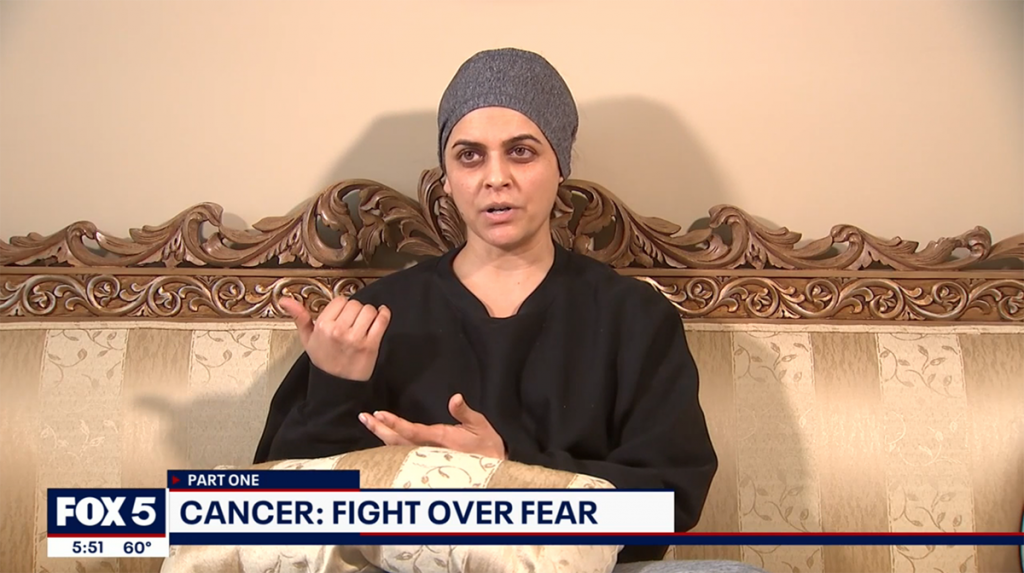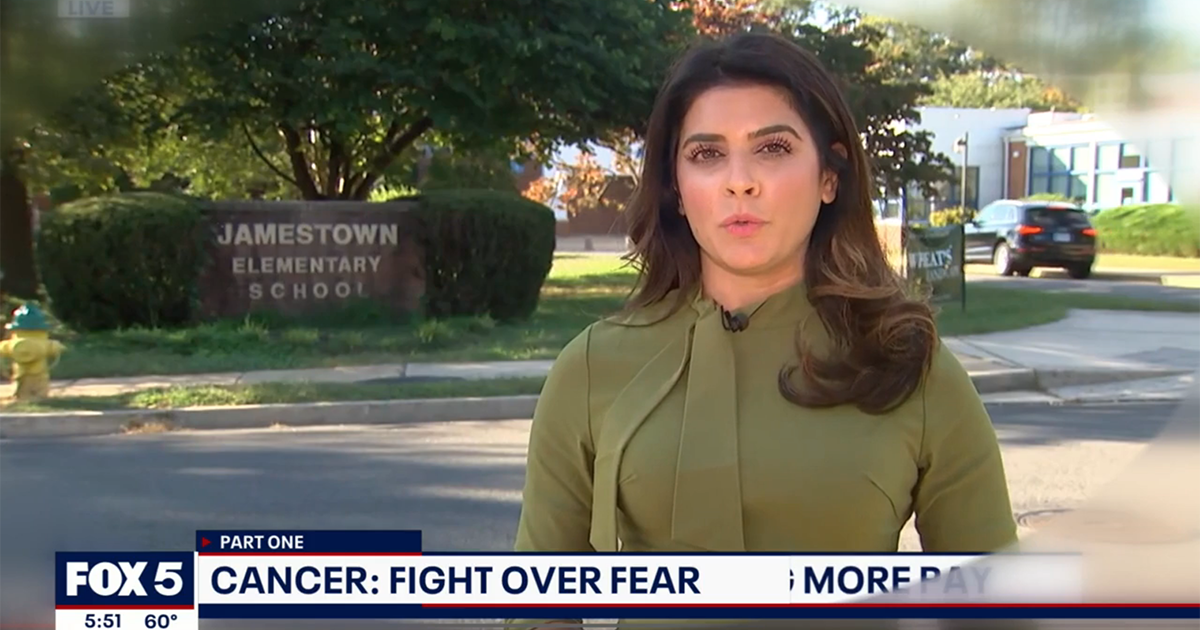Ayesha Khan's Cancer Diagnosis
- Ayesha Khan, a reporter at FOX 5 in Washington, will be spending the next 11 weeks undergoing chemotherapy for stage 3 invasive breast cancer.
- Khan’s tumor was classified as invasive ductal carcinoma. This is the most common type of breast cancer; about eight in 10 invasive breast cancers are invasive (or infiltrating) ductal carcinomas.
- Khan received her devastating diagnosis at age 39, a few weeks shy of her 40th birthday. Breast cancer mostly occurs in older women, but it is possible for women under the age of 45 to be diagnosed.
Why? She is undergoing chemotherapy treatment for stage 3 invasive breast cancer.
Read More(1/3) As #journalists, we aren't accustomed to telling stories in first person. However, this time, I am reporting from the front lines of #cancer fueled by my personal experience with the disease and a deep sense of public responsibility. @fox5dc @Ama_A_Asmah pic.twitter.com/UF7i11Bbok
Ayesha Khan (@AyeshaKhanNews) February 10, 2022
Khan, a DMV native, has been off the air at FOX 5 since October to focus on her health. But now, she is getting back in front of the camera to share her story, as part of a two-part series, "Cancer: Fight Over Fear," to spread awareness and hopefully help others. (The first part of her series aired Thursday, and the second part will air next Thursday, Feb. 17, 2022.)
Ayesha Khan's Cancer Diagnosis
It was Friday, July 20, 2021; it was a hot summer day in the DMV area. Khan was meeting a co-worker in the field to work on a story, but when she arrived, she was on the phone with her doctor.
Her doctor said: "Brace yourself, the biopsy came back…"
"All he had to say was 'brace yourself' and I just knew," Khan says. Her worst fear was confirmed: she had breast cancer.

More specifically, the tumor was classified as invasive ductal carcinoma. This is the most common type of breast cancer; about eight in 10 invasive breast cancers are invasive (or infiltrating) ductal carcinomas. Khan's tumor was in two different places, right behind the nipple; one was 2.8 centimeters in size, and the other was 1.1 centimeters.
The first thought that went through her mind, she says, was, "Am I going to die?"
"The diagnosis forced me to quickly make a decision about fertility and freeze my eggs, known as cryopreservation," Khan explains. This is a "very uncomfortable, tedious not to mention, an expensive out-of-pocket process," she adds, "But it was important to me because most cancer treatments can cause infertility in pre-menopausal women."
Khan received her devastating diagnosis at age 39, a few weeks shy of her 40th birthday. That is relatively young to receive a breast cancer diagnosis, considering organizations like the U.S. Centers for Disease Control and Prevention and American Cancer Society recommend women start getting yearly mammograms when they turn 45 years old. Women ages 45 to 54 should get a mammogram every year.
Aggressive Breast Cancer in Young Women
Breast cancer mostly occurs in older women, but it is possible for women under the age of 45 like Khan to be diagnosed. About 9% of all new breast cancer cases in the U.S. are found in women younger than 45.
"And just like any woman," Khan says, "I never imagined being that statistic."
In some ways, a diagnosis for a younger woman can often be even more devastating, Dr. Ann Partridge, an oncologist at Dana-Farber Cancer Institute in Boston, tells SurvivorNet during a previous interview. This is because the disease is likely to be a more aggressive form of the disease and at an advanced stage, as screening for younger women is not standard.
Breast Cancer Surgery
Since Khan's tumor is located directly behind her nipple, she is worried about losing it during surgery.
Her doctor, Dr. Colette Magnant of Maryland Oncology Hematology, has explained that she would "do everything she can" to surgically spare Khan’s nipple, however, Dr. Magnant also told Khan to "be prepared for losing the entire breast."
If you are faced with the choice of whether to reconstruct your breast after cancer, figuring out how to preserve your natural appearance is an important issue.
What is Nipple-Sparing Mastectomy?
In a procedure called the nipple-sparing mastectomy, doctors use special techniques to shell out a woman's breast, leaving the skin, and the nipple, intact. The idea is to maintain, as close as possible, the natural look of the breast. After mastectomy, a plastic surgeon will use either an implant or the woman's own tissue to recreate the breast. When a woman's own tissue is used, doctors typically take it from fat in the patient's lower abdomen.
Dr. Irene Wapnir, a breast surgeon at Stanford Medicine, tells SurvivorNet this is "certainly the ideal procedure for those women who chose to have prophylactic mastectomy, who don't yet have breast cancer." This is not the case for Khan, but it is extremely important to her to save her nipple.
If sparing her nipple does not work, as Dr. Magnant has said, a complete mastectomy will take place; this procedure is the removal of the entire breast during surgery.
Listen to Your Body & Advocate for Yourself
In her 20s, Khan says she told "every doctor I ever saw" about a small but hard tissue build-up underneath her right breast.
"After all, breast cancer runs in my family on both sides," she says, adding that her maternal grandmother and paternal aunt both died from breast cancer. "One physician even sent me for a mammogram being that young," she continues, "but nothing alarming popped up."
Advocating for Yourself While Navigating the Medical World
However, in her 30s, "the tissue build-up was getting bigger, and painful, causing part of my breast to visibly begin changing shape." She sought medical attention, and after a mammogram, an ultrasound, and an MRI, she went in for a biopsy that confirmed her worst fear: breast cancer.
"You never think about what's going to happen to you," Khan says, "so, I really hope that women who are watching, women who are my age, who might be younger, like, go get it done, self exam, get a mammogram, get that ultrasound, push for that scan, push for that next test."
Contributing: SurvivorNet staff
Learn more about SurvivorNet's rigorous medical review process.


